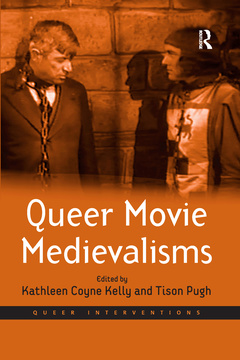Description
Queer Movie Medievalisms
Queer Interventions Series
Author: Pugh Tison
Coordinator: Kelly Kathleen Coyne
Language: English
Keywords
Young Men; Medieval Film; carolyn; Carolyn Dinshaw; dinshaw; Richard Coeur De Lion; film; Robin Hood; robin; Karma Lochrie; hood; Temujin; richard; Movie Medievalisms; coeur; Flying Circus; lion; Milla Jovovich; tison; Black Fox; pugh; Ozon’s Film; Monty Python’s Flying Circus; Syberberg’s Film; Cenci Story; Syberberg’s Parsifal; Unio Mystica; Queer Movie Medievalisms; Je Ne; Queer Cinema; Modern Family; Star Persona; Wagner’s Legacy; Melvin Frank; King Arthur’s Court
Publication date: 06-2020
· 15.6x23.4 cm · Paperback
Publication date: 07-2009
· 15.6x23.4 cm · Paperback
Description
/li>Contents
/li>Biography
/li>




